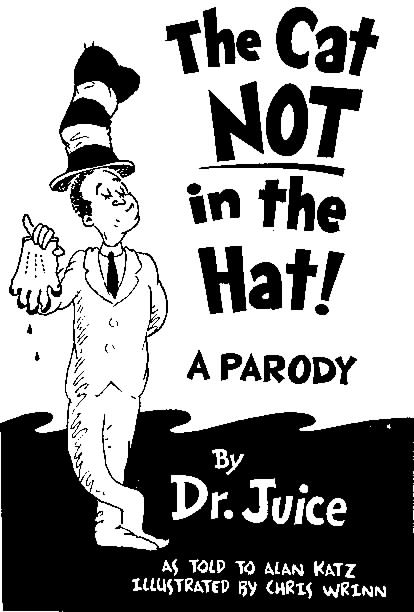The parody book “The Cat NOT in the Hat! A Parody” by Dr. Juice used Suess- like rhymes and illustrations to tell the story of O.J. Simpson’s double murder trial. The book depicts O.J. Simpson, wearing the Cat in the Hat’s distinctive red and white striped stove-pipe hat, and holding a bloody glove. An example of a line from the book: “One knife?/Two knife?/Red knife/Dead wife.”
Parody falls under fair- use according to the Copyright Act. However, what defines parody? According to the book, “Mass Media Law”, parody must “reflect the content of the original work not just the style or method of presentation”(523). In fact, Dr. Suess Enterprise sued because they did not believe that Dr. Suess’ image should be allowed to be commingled with a murder trial. Penguin book lost the trial because the court found that it was more a parody of the O.J. Simpson trial that used Suess’ shtick.
http://www.imaginelaw.com/lawyer-attorney-1181191.html